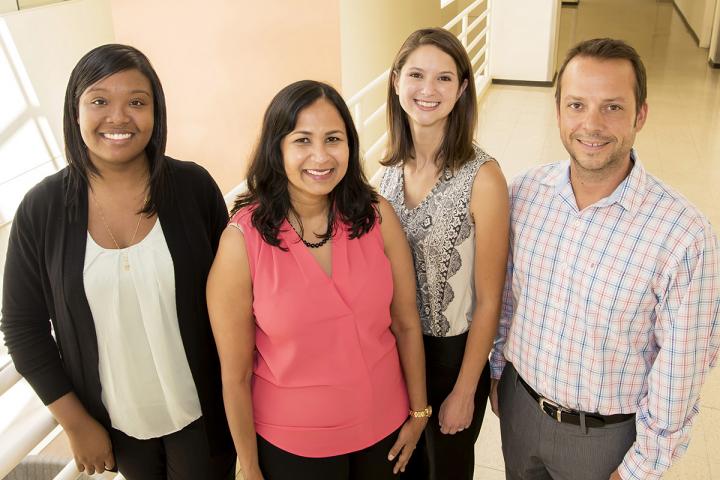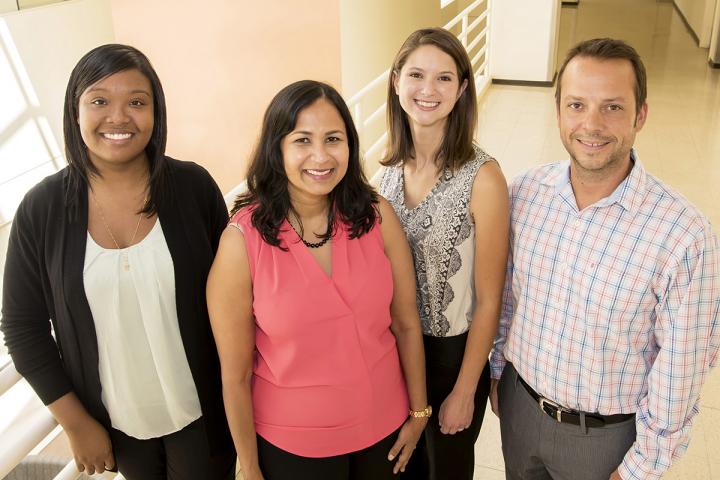
Credit: Photo by Steph Adams
CHAMPAIGN, Ill. — Chemical compounds called cannabinoids are found in marijuana and also are produced naturally in the body from omega-3 fatty acids. A well-known cannabinoid in marijuana, tetrahydrocannabinol, is responsible for some of its euphoric effects, but it also has anti-inflammatory benefits. A new study in animal tissue reveals the cascade of chemical reactions that convert omega-3 fatty acids into cannabinoids that have anti-inflammatory benefits — but without the psychotropic high.
The findings are published in the Proceedings of the National Academy of Sciences.
Foods such as meat, eggs, fish and nuts contain omega-3 and omega-6 fatty acids, which the body converts into endocannabinoids — cannabinoids that the body produces naturally, said Aditi Das, a University of Illinois professor of comparative biosciences and biochemistry, who led the study. Cannabinoids in marijuana and endocannabinoids produced in the body can support the body's immune system and therefore are attractive targets for the development of anti-inflammatory therapeutics, she said.
In 1964, the Israeli chemist Raphael Mechoulam was the first to discover and isolate THC from marijuana. To test whether he had found the compound that produces euphoria, he dosed cake slices with 10 milligrams of pure THC and gave them to willing friends at a party. Their reactions, from nonstop laughter, to lethargy, to talkativeness, confirmed that THC was a psychotropic cannabinoid.
It wasn't until 1992 that researchers discovered endocannabinoids produced naturally in the body. Since then, several other endocannabinoids have been identified, but not all have known functions.
Cannabinoids bind to two types of cannabinoid receptors in the body – one that is found predominantly in the nervous system and one in the immune system, Das said.
"Some cannabinoids, such as THC in marijuana or endocannabinoids can bind to these receptors and elicit anti-inflammatory and anti-pain action," she said.
"Our team discovered an enzymatic pathway that converts omega-3-derived endocannabinoids into more potent anti-inflammatory molecules that predominantly bind to the receptors found in the immune system," Das said. "This finding demonstrates how omega-3 fatty acids can produce some of the same medicinal qualities as marijuana, but without a psychotropic effect."
###
The study was an interdisciplinary effort led by recent comparative biosciences alumnus Daniel McDougle and supported by current biochemistry graduate student Josephine Watson. The team included U. of I. animal sciences professor Rodney Johnson; U. of I. bioengineering professor Kristopher Kilian; Michael Holinstat, of the University of Michigan; and Lucas Li, the director of the Metabolomics Center at the Roy J. Carver Biotechnology Center at Illinois.
The National Institutes of Health and the American Heart Association supported this research.
Editor's notes:
To reach Aditi Das, call 217-244-0630; email [email protected]. The paper "Anti-inflammatory omega-3 endocannabinoid epoxides" is available online and from the U. of I. News Bureau.
Media Contact
Steph Adams, Science Writer
[email protected]
217-333-5802
@NewsAtIllinois
http://www.illinois.edu
Related Journal Article
http://dx.doi.org/10.1073/pnas.1610325114





